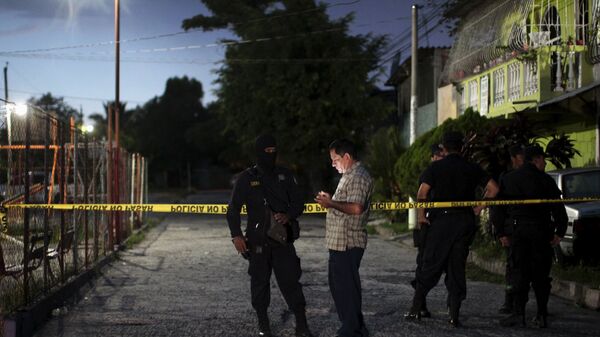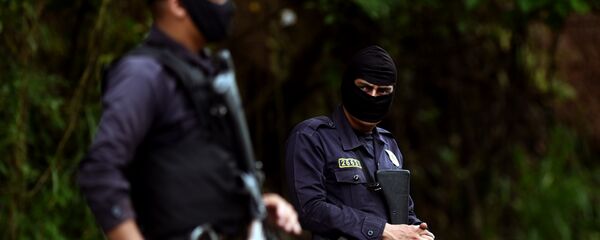At least 6,657 homicides were recorded by authorities in El Salvador in 2015, which is 3,942 or 70% more than the previous year, the country's police chief Mauricio Ramirez Landaverde said.
The Salvadorian police seem to be the busiest with 104 homicides per 100,000 residents last year compared to 2009, when the murder rate peaked at 71 killings. The Central American country is now ahead of neighboring Honduras, the world's former murder capital with 84 homicides the previous year.
"It puts us at the head of the world's most violent nations," including Honduras and Venezuela, said Jeannette Aguilar, a researcher at Jose Simeon Canas Central America University.
The government's severe measures to address organized crime didn't work as the homicide rates grow on a large scale mostly between two gangs. According to the country's law enforcement, most of the killings are among members of rival "maras" gangs that took up arms after a brief break.
Gang-related shootings occur quite frequently despite numerous attempts by police to crack down on the violence. Former New York Mayor Rudolph Giuliani was invited to El Salvador in May to advise local law enforcement on tactics to decrease the crime rate.
"The homicide rate reflects the inability of the Salvadoran state and the Salvadoran society to guarantee the most fundamental right there can be in a society, which is life," Aguilar said.
In a single day last August 51 people lost their lives in El Salvador.
An increase in poverty and reduced economic growth have directly caused unprecedented violence, public insecurity and lead to the inability of the Salvadoran police to eliminate the gang violence. According to the World Bank, around 10 % of the country's GDP is lost annually due to the violence.





